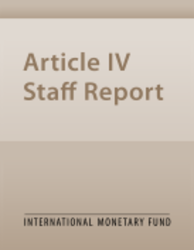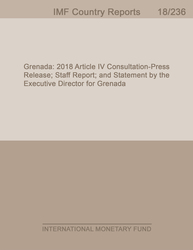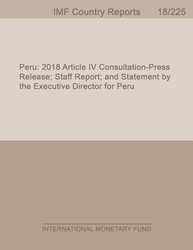
Uganda: Second Review Under the Policy Support Instrument and Request for Modification of Assessment Criteria-Staff Report; Staff Supplement; Press Release on the Executive Board Discussion; and Statement by the Executive Director for Uganda
Volume/Issue:
Volume 2008
Issue 004
Publication date: January 2008
ISBN: 9781451838848
$20.00
Add to Cart by clicking price of the language and format you'd like to purchase
Available Languages and Formats
| English |
Prices in red indicate formats that are not yet available but are forthcoming.
Topics covered in this book
This title contains information about the following subjects.
Click on a subject if you would like to see other titles with the same subjects.
Exports and Imports , Money and Monetary Policy , Public Finance , Business and Economics - Statistics , ISCR , CR , Uganda , debt , NPV , real GDP , program objective , PSI-supported program , infrastructure bottleneck , IMF's framework , debt management strategy , private sector , unwavering commitment , Monetary base , Debt sustainability , Africa , Global
Also of interest
Summary
Uganda’s medium-term expenditure framework (MTEF) aims at higher public savings based on spending restraint and rising domestic revenue. The Bank of Uganda (BOU) has successfully contained the one-time shocks to prices of increases in electricity tariffs and temporary sugar and diesel fuel shortages. In an environment of strong inflows, price stability remains the primary objective of monetary policy. A shallow financial sector limits Uganda’s ability to absorb foreign exchange inflows and is in itself a formidable obstacle to faster economic growth.
Copyright © 2010 - 2026
Powered by:
AIDC



